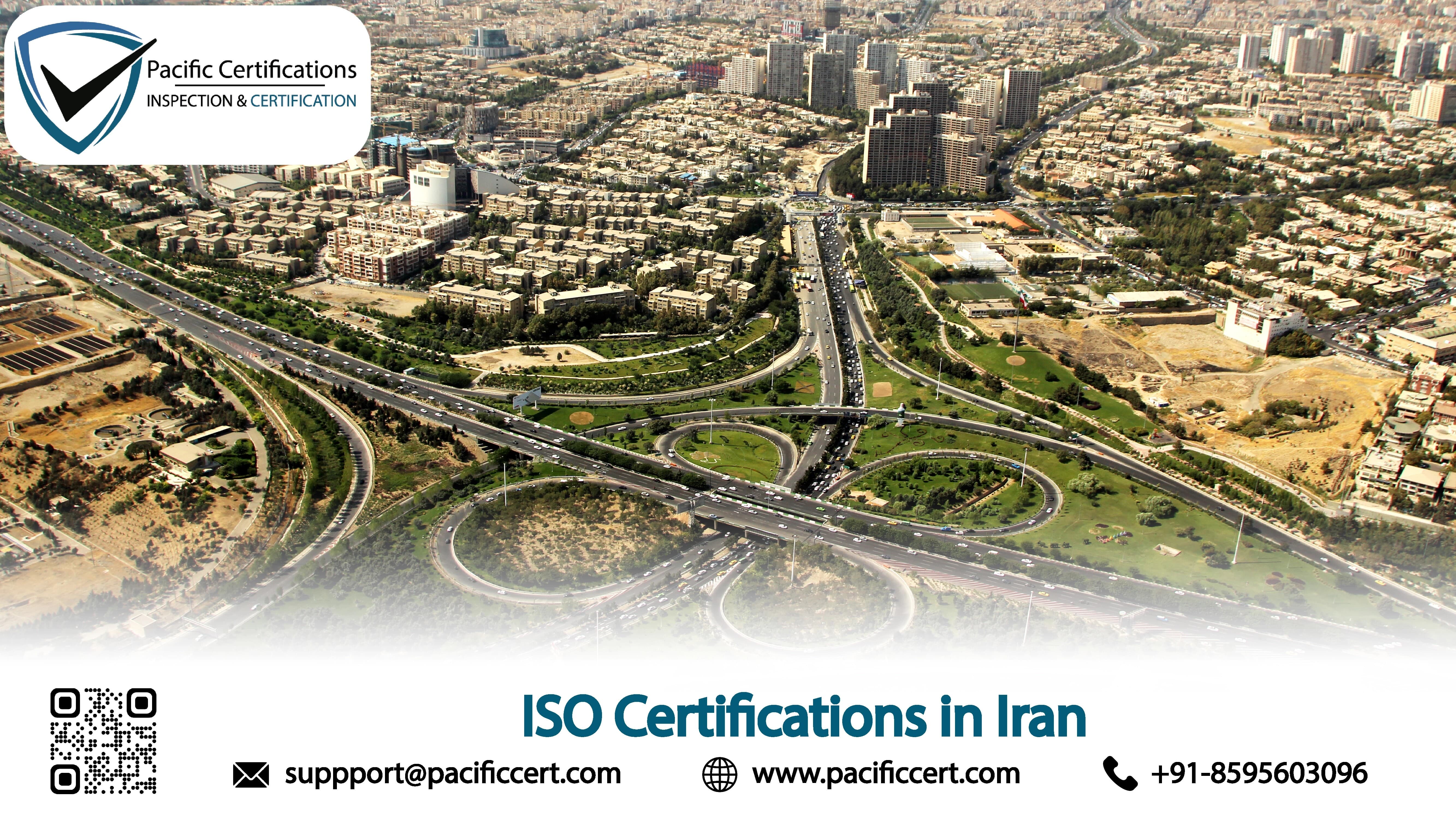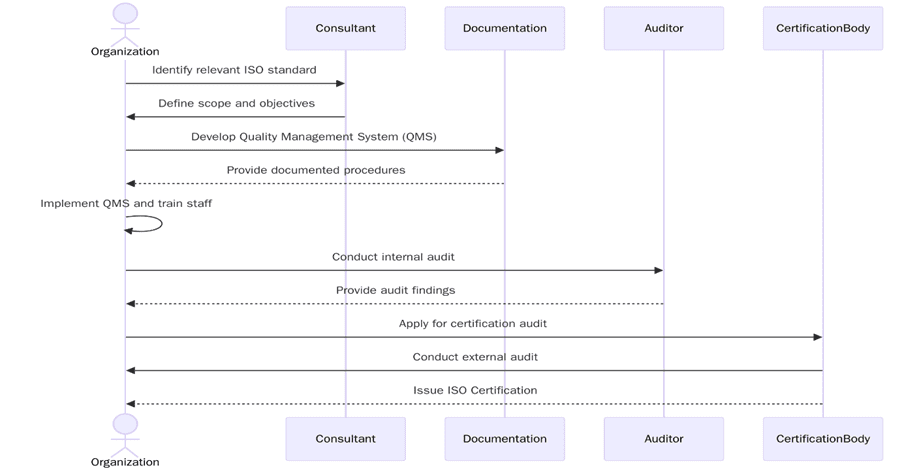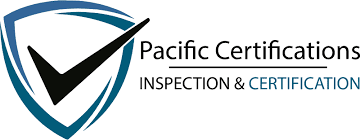ISO Certifications in Iran, Popular Standards, Requirements and Benefits

Introduction
Iran’s economy mixes hydrocarbons and petrochemicals, steel and cement, automotive and parts, agrifood and cold chain, construction and EPC, logistics through Bandar Abbas, Bandar Imam and Chabahar, healthcare and laboratories, and a fast-growing digital services base across Tehran, Isfahan, Shiraz and Mashhad. By adopting standards such as ISO 9001 (Quality Management), ISO 14001 (Environmental Management) and ISO 45001 (Occupational Health & Safety), companies in Iran can improve efficiency, reduce waste and earn trust from partners and regulators. For expanding areas like ICT, construction and agrifood, ISO certification has become a practical step to attract international clients and compete with confidence. These programs provide auditable proof across quality, safety, environment, information security and continuity that buyers and financiers recognize in regional and global trade.
Begin your ISO application in Iran with Pacific Certifications, we will confirm scope and propose Stage-1 and Stage-2 audit dates under recognized accreditation.
Economic Context & Industry Overview
Hydrocarbons and gas processing anchor exports while downstream chemicals, metals, construction materials, agrifood and logistics support domestic demand. Automakers and tier suppliers continue to localize parts and improve line yield. Ports and special zones seek higher throughput and safer operations. Banks, fintech and telecom platforms keep digitizing services which raises expectations on data security and uptime. In each of these areas, procurement teams and regulators ask for auditable management systems as a baseline for vendor approval and due diligence.
Why ISO certification matters in Iran?
Major buyers want evidence-based systems with clear records. ISO shortens vendor approvals, stabilizes quality on precision lines, reduces incidents on sites, supports energy and emissions programs, and protects data and uptime for banks, telecoms and public platforms. For food and cold chains, HACCP-based proof is vital for retailer and export acceptance. Certification also organizes day-to-day evidence, policies, KPIs, competence, risk files and corrective actions, so external reviews move quickly and predictably.
Popular ISO Standards in Iran
Industry focus | Commonly requested standards | Why they matter |
Oil & gas, petrochemicals, pipelines, EPC | ISO 9001, ISO 14001, ISO 45001, ISO 50001, ISO 22301 | Process discipline, emissions control, safer operations, energy performance, continuity |
Steel, cement, mining & materials | ISO 9001, ISO 14001, ISO 45001, ISO 50001 | Quality, environmental aspects, OH&S, energy intensity |
Automotive, parts, machinery | ISO 9001, ISO 14001, ISO 45001 | Line stability, site safety, environmental care |
Agrifood, cold chain, retail exports | ISO 22000, FSSC 22000, ISO 9001 | HACCP, temperature integrity, traceability |
ICT, fintech, telecom, data centres | ISO/IEC 27001, ISO 22301, ISO/IEC 20000-1, ISO/IEC 27701 | Security, continuity, IT service quality, privacy governance |
Healthcare, labs, diagnostics | ISO 9001, ISO 15189, ISO/IEC 17025 | Patient trust, valid results, competence |
Ports, logistics, warehousing | ISO 9001, ISO 14001, ISO 45001, ISO 28000 | Throughput, environmental controls, safe handling, chain security |
Certification Process in Iran
Preparation starts with an honest view of how work runs today and how evidence is captured. The aim is to make your system auditable without reinventing daily routines. Below are the steps to consider:
- List products services sites headcount and high-risk processes for clear scope
- Map processes end to end to show handoffs records and responsibilities
- Set policy and measurable objectives linked to customer and legal needs
- Assemble evidence packs for production maintenance labs IT and logistics
- Train process owners keep competence matrices and attendance records current
- Calibrate instruments verify methods and file certificates for quick checks
- Run internal audits that sample high-risk tasks and supplier interfaces
- Hold management review with KPIs audit results complaints legal updates and actions
- Schedule Stage 1 for readiness and Stage 2 for implementation verification align multi-site sampling to risk
- Blend on-site checks with remote interviews where suitable to reduce travel time
- Keep permits licenses and regulatory reports organized for quick verification
What are the requirements of ISO Certifications in Iran?
A workable system mirrors real work on lines, sites, labs, warehouses and data rooms. Align controls with national rules so evidence stands up in audits, inspections and buyer reviews; below are the key requirements:

- Scope that matches products and services, processes and sites including multi-site programs
- Document control with procedures and records that reflect practice not theory
- Risk assessment with operational controls for real hazards: HACCP, site safety, environmental aspects, privacy/security, energy and change management
- Competence matrices and training records for process owners and high-risk roles
- Internal audits with reports, nonconformities, root-cause actions and verified closures
- Management review with inputs—KPIs, audits, incidents or complaints, legal updates and tracked decisions
- Standard-specific artefacts: HACCP and CCP logs (ISO 22000), Statement of Applicability and risk files (ISO/IEC 27001), HIRA and PTW (ISO 45001), aspect-impact registers and objectives (ISO 14001), energy review and EPIs (ISO 50001)
- Legal and other requirements register with permits, inspections, calibrations, monitoring data and supplier compliance evidence
Tip:Map controls to environmental permits and monitoring under national DOE guidance, OH&S duties under labour rules, food and veterinary rules for agrifood, and banking or telecom directives for data security and continuity.
What are the benefits of ISO Certifications in Iran?
Use certification to win public and private tenders, reassure lenders and partners and keep performance steady across sites; below are the key benefits:

- Faster prequalification in buyer portals and public procurement
- Fewer incident defects and unplanned stoppages on sites and plants
- Clear roles and competence development for critical operations and maintenance
- Traceable data for warranty claims ESG and due diligence
- Stronger supplier oversight through audits KPIs and corrective actions
- Measurable gains in energy use waste emissions uptime and yield
- Stronger brand signals in regional and international markets
Market Trends
Industrial energy costs and reliability will keep pressure on large users to formalize ISO 50001 programs and to pair them with ISO 14001/45001 to show auditable EHS performance as plants modernize kilns, furnaces and utilities. Logistics corridors tied to Bandar Abbas and Chabahar are adding capacity in terminals and warehousing which pushes ports and 3PLs toward ISO 9001/14001/45001/28000 for throughput, safety and chain security. Food exports continue to rely on temperature integrity and traceability so processors and distributors are expanding ISO 22000/FSSC 22000 across fleet, cold rooms and retail delivery. In digital services, payments and telecom platforms are scaling service commitments which raises demand for ISO/IEC 27001 and ISO 22301 to evidence security and continuity across dispersed operations.
Challenges Faced in Iran
Operational, regulatory and evidence-readiness issues related to getting certified can cause delays—budget limits and staffing gaps, incomplete or outdated documentation and records, weak internal audits and corrective actions, supplier-control gaps, multi-site sampling and travel logistics, calibration and permit backlogs and data mapping for ICT; below are the key challenges:
- Budgeting for certification time and ongoing system maintenance
- Treating ISO as compliance rather than a performance tool in some teams
- Shortage of seasoned internal auditors and process owners at remote sites
- Stalling on document control internal audits and corrective-action discipline
- Multi-site and supplier sampling complicating logistics and evidence quality
What is the cost of certification in Iran?
Budgets are confirmed after scoping and reflect headcount and risk, the number and spread of sites, your chosen standards set, single or integrated such as 9001+14001+45001, sector sampling depth for process plants pipelines cold chains or offices and travel logistics. Your proposal itemizes Stage 1, Stage 2 and surveillance days, clarifies on-site versus remote activities and highlights any multi-site efficiencies for predictability.
For personalized quote, contact [email protected].
What is the timeline for certification in Iran?
Timelines depend on document and record readiness, the speed of closing any Stage-1 findings, whether you are single- or multi-site and whether the program is single-standard or integrated. Coordinating audit windows around shutdowns production ramps or harvests and auditor travel to regional or remote sites also affects duration. A well-prepared single site can progress from application to decision within one audit cycle. Multi-site or integrated programs need additional sampling and planning time.
How Pacific Certifications can help?
Pacific Certifications audits and certifies ISO management systems for oil and gas and petrochemicals, steel and cement, automotive and parts, agrifood and cold chain, logistics and ports, healthcare and labs and ICT or cloud across Iran. We work under recognized accreditation with transparent pricing and an experienced local team that understands site realities and buyer expectations. Our certificates are accepted by procurement portals and international customers, and we are recognized by ABIS.
Request your ISO audit plan and fee estimate. We will help you map Stage 1 and Stage 2 timelines and evidence requirements for your organization. Contact us at [email protected] or visit www.pacificcert.com.
Accredited Training Programs
Pacific Certifications provides accredited training programs in Iran for ISO 9001, ISO 14001, ISO 45001, ISO 22000 or FSSC 22000, ISO/IEC 27001, ISO 22301 and ISO/IEC 20000-1.
- Lead Auditor Training: for professionals auditing these systems across Iranian industries.
- Lead Implementer Training: for personnel establishing or improving systems in plants sites cold chains hospitals utilities and ICT platforms.
These programs are conducted online or onsite, depending on client needs under ISO/IEC 17024 for personnel certification.
To begin the process or request a quotation, contact us at [email protected] or visit www.pacificcert.com.
Our team will guide you through the audit and certification process and planning stages specific to your operations in Iran.
Ready to get ISO certified?
Contact Pacific Certifications to begin your certification journey today!
Suggested Certifications –
Read more: Pacific Blogs

